By: Dr. Hayu Prabowo, Chair of the Environmental & Natural Resources Breeding Institute of the Indonesian Ulema Council (LPLH & SDA MUI)
The public’s need for halal-labeled products and services is increasing. The majority of Indonesia’s population is Muslim, so this country is a large and potential market for Muslim products.
Based on a report from the State of Global Islamic Economic Report 2020-2021, the consumption level of the world’s Muslim community reached USD 2.02 trillion, which came from the food, pharmaceutical, cosmetic, fashion, travel, and halal media/recreation sectors.
This level of consumption is expected to continue to increase to reach US$ 2.4 trillion by 2024 with an average annual growth rate of 3.1 percent.
Also Read: Boycott of Zionism, The Most Powerful Weapon
This year, Indonesia is ranked second in world halal tourism in 2022. The indicator is measured by six sectors, food and beverage, financial services, Muslim-friendly travel, modest fashion, pharmacy, and cosmetics, as well as media and recreation. The increase in ranking is influenced by the enactment of Law Number 33 of 2014 concerning Halal Product Guarantee in October 2019.
Shopping is the most popular activity for local and international tourists. Therefore, shopping centers can get halal tourism opportunities by providing various facilities, infrastructure, and services needed by Muslim visitors and tourists.
Based on a survey conducted by several shopping centers in Jakarta, the provision of facilities and services for Muslim visitors has increased the number of visitors and increased the time visitors spend in shopping centers.
Shopping centers and their facilities and communities must provide a pleasant shopping experience for their visitors. The provision of halal food and Muslim-friendly facilities is also the right of consumers to obtain goods and services according to their needs because this has been stipulated by Law 8/1999 on Consumer Protection, especially in Article 4 concerning Consumer Rights related to (1) the right to comfort, security, and safety in consuming goods and/or services; and (2) the right to correct, clear, and honest information regarding the conditions and guarantees of goods and/or services.
Also Read: Nuclear Technology: Harm and Benefit from the Qur’anic Perspective
Affirmed by the Indonesian Consumers Foundation and Shopping Center Entrepreneurs, Muslim consumers have the right guaranteed by law to obtain and obtain information about the halalness of a product, both consumer and non-consumable products (eg cosmetics, leather products, etc.).
There are at least six Muslim tourism needs: halal food & products, prayer facilities, toilets with purification facilities, Ramadan/fasting services, no immoral activities and certain facilities separated by gender.
In the concept of a Muslim-friendly mall, a shopping center or mall must include the halalness of a consumer or non-consumable product, so that consumers get information to obtain or consume products that suit their needs.
Based on the results of a study by the Center of Reform on Economics Indonesia (CORE) states, muslim consumers’ purchasing power and halal registration applications are increasing. This shows that products labeled “Halal” are very important and a necessity for Indonesian.
Also Read: Gaza Cries Out, the World Stays Silent: A Wounded Humanity
In addition, in Law no. 33 of 2014 concerning Halal Product Guarantee, the state is obliged to provide protection and guarantees regarding the halalness of products consumed and used by the public.
Shopping malls can capture these challenges and opportunities. Moreover, Indonesia has the potential to become a destination for foreign Muslim tourists.
Travelers are constantly looking for new ranges of services and new experiences, so customer loyalty is hard to come by. Therefore, identification of consumer segments is very important in today’s increasingly competitive market.
In addition, all parties need to build a common view and take real, synergistic actions to develop Indonesia’s Muslim tourism destinations and industry by realizing Muslim Friendly Malls and Muslim Friendly Tourism.
Also Read: Indo Defence Expo and Forum; Sharing Responsibility of Humankind and Environment
Not to forget, it is necessary to standardize and rank Muslim-friendly malls and make it the basis for the development of Muslim-friendly tourism in Indonesia, through the promotion of Muslim-friendly tourist destinations, especially Muslim-friendly malls. (T/ri/RE1)
Mi’raj News Agency (MINA)
Also Read: Safiya Saeed: From Somali Migrant to First Hijab-Wearing Mayor of Sheffield














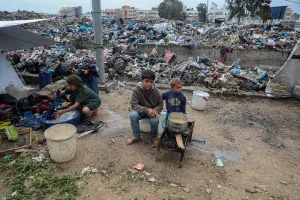
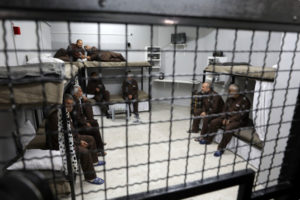
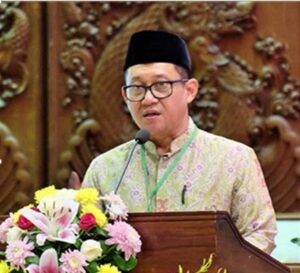

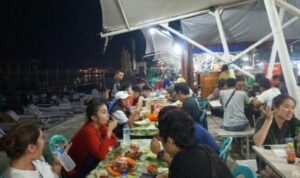





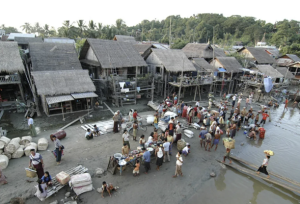




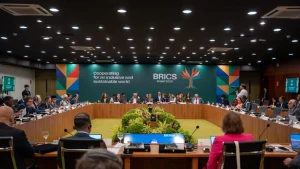





 Mina Indonesia
Mina Indonesia Mina Arabic
Mina Arabic